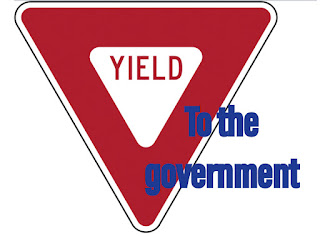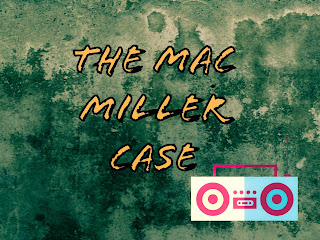Political Crimes? Non-Existent Bipartisanship and Invisible Social Harm: The Dumb Discourses of American Politicians and How it Transitions into Dumb Discourses for American Citizens
American politicians have
a two-step process that allows their behaviors to continuously thrive. That is, 1.)
Configuring social problems that cause stress for ordinary citizens and organizations,
and 2.) Discussing the created social
problems in a way that makes them appear righteous in their activities and
performing actions in public to make them appear coherent to societal issues
that have arisen. Recently, and for
example purposes, the above-mentioned two-step political process is seen with
the immigration dilemma that both political parties have been using as a utility
to acquire support and reduce the power of opposing politicians and their supporters
(The Economist, 2018; Tanfani, Lange, & Stein, 2018). Overall, the immigration issue is being used as
a dividing factor in the political arena in the United States and is not being
discussed in its full breadth with beneficial solutions included (The
Economist, 2018; Tanfani et al., 2018).
Conservative politicians and old-fashioned citizens are focusing on xenophobic
variables, and the liberals of society are simply presenting the xenophobic
tendencies of the opposing political and civilian groups to contradict the prejudiced
notions and, again, look righteous in their political endeavors (The Economist,
2018; Tanfani et al., 2018). Neither
group has actually presented any positive outcomes that would serve as an
agreement in both stances and, in turn, allow for societal progression
domestically or internationally.
With
this being stated, the opposing behaviors about the immigration policies that
are being discussed, as well as additional manifested social issues within the
political and public stadia, are a demonstration of how politicians view the
position of public office as a profession that allows for incompetent decisions
to be turned into heroic postulations (Edwards, 1989, 2009, 2012; Krehbiel,
1998; Lee, 2009). First, the incompetent
decisions must be discussed and philosophically presented. Politicians in American society take social issues
and turn them into enormous political debates without working together in mind (Edwards,
1989, 2009, 2012; Krehbiel, 1998; Lee, 2009).
Rather than working together to comprehend all views about the social issue,
they choose their positions, stomp their feet into the ground, and force their
supporters to either align themselves with the chosen political bearing that
has been manufactured or be disregarded (Bøggild, 2015; Mutz & Martin, 2001; Shantz, 2012). In turn, these forced “choices” cause
viewpoints to be conjured that entail viewing opposing thinkers as enemies of
democracy (Bøggild, 2015; Edwards, 1989, 2009, 2012; Krehbiel, 1998; Lee, 2009). Are these political processes by the public
officials intelligent activities? Or are
they a form of unnecessary disruption toward democratic governances that make
one side of the public officiality incorrect or correct? Case in point, the lack of bipartisanship by
both political parties and citizens, coupled with the lack of togetherness that
brings factual content to the forefront of the social issue so that the public
can decide which policy route to take, is as dumb as dumb can be in this author’s
opinion. In other words, the politicians
who take their positions on a social issue like immigration in the United
States expect their supporters to take on their
political beliefs and rarely turn to the public to generate policies that are made
from popular demand from citizens (Bøggild, 2015; Edwards, 1989, 2009, 2012;
Krehbiel, 1998; Lee, 2009). Who exactly
does this form of governance represent and how is it considered smart to have a
few public leaders speaking for millions of citizens without any significant inquiry
into the desires of ordinary citizens?
Are these polls that are seen on national news networks an accurate
depiction of the hundreds of millions of decisions by citizens in the United States? The answer to this question is acquired by viewing
the contradictory percentages that each politically-motivated news network
conveys during their broadcasts. Dumb governmental practices have a reciprocal effect, which is that it causes dumb thinking to
permeate and be accepted by the masses as something that is normal. Stupidity is something that should not be
considered normal and half-ass public service is nothing to be proud of. Yet, millions of Americans base their decisions
and support toward a political party based on what a few political leaders and
news networks are passing on.
Now,
the heroism by the public officials needs to be further discussed. Politicians, without much doubt, want to be
viewed as a champion of the people. Political
champions in contemporary America are derived from competitive procedures. If bipartisanship was
actually conducted and the public servants actually made policies that are
wanted by the citizens from both sides of the social spectrum, there would be a
huge host of champions in our culture.
Which means that the glory of being a champion would be distributed and
not be a singularity only for politicians. Even with claims
by politicians that suggest that this is what their behaviors are all about,
they do not want this dispersal of victory in society, as it would make
their organizational donors saddened because the people – and not money or
business interests – would be more persuasive in politics (Bøggild, 2015; Prindle,
2006; Woodiwiss, 2003). So, the
political heroism is generated by delivering ideas about public policies by public
officials without much research into the opinions of the public prior to the
delivered politically-construed beliefs by the politicians (Bøggild,
2015; Prindle, 2006; Shantz, 2012; Woddiwiss, 2003). In other words, politicians deliver political
stances for the public and the public is forced into a decision of who to side with based on
their political affiliation (Bøggild, 2015; Brockner & Wiesenfeld,
1996; Edwards, 1989, 2009, 2012; Krehbiel, 1998; Lee, 2009). Once more, the heroism is guided by dictated
political virtues that are dispensed by the leaders of the two political
parties in the United States. It is a
top-down approach to public service and brings questions about how much public
service is really being conducted because of this structure (Bøggild, 2015;
Prindle, 2006; Woodiwiss, 2003).
A
massive amount of social harm takes place because of this political structure
in the United States. Purple politics
does not exist, that is, and citizens are forced to wave either a blue or red
flag or become outcasts in the political arena if they reject both parties’
postulations. The top-down approach to
governance in this country causes many Americans to blindly support
political parties without much concern for themselves. Citizens are required
to evaluate their beliefs and choose which side of politics that they fit in to,
rather than evaluating their beliefs and requiring politicians to represent
them based on these perceptions in other words. This
discourse by the politicians is the transition of dumbness mentioned in the
title and serves as example of the passive mobility in political issues by
civilians. More specifically, political
dogma is being established by the politicians and accepted by the citizens
because of the normalcy of propaganda in the United States that causes
individuals to disregard their desires for the desires of a political party
that have been created by the politicians of the specific political party (Bøggild,
2015; Prindle, 2006; Shantz, 2012; Woodiwiss, 2003). Social harms come about in various facets and can be categorized as acceptance of hypocritical governance by citizens for public officials, outrageous and moronic dissidence toward outward criticism about the status quo politics
mentioned in this piece, and passive mentalities that subjugate individuals
from seeking public service that is based on their needs and desires. As previously mentioned, much of this is
driven by social elites – which includes politicians – and through wealthy donors
who pay politicians and their associated parties to induce ideations that serve
their interests. Until the capitalistic
influences are removed from politics in the United States, the citizens and
others will continue to view their governance with a passive mentality that
includes being told how to vote and what to stand for or seek in the political
arena. Social issues of significant importance ought to be delivered by the public and not only the public officials.
References
---- (2018, November 8). Democrats need to see immigration as a
campaign issue. That is how
Donald Trump sees it. The
Economist. Retrieved from
https://www.economist.com/united-states/2018/11/08/democrats-need-to-see-
immigration-as-a-campaign-issue.
Bøggild, T. (2015). How politicians’ reelection efforts can reduce
public trust, electoral
support, and policy approval. Political
Psychology, 37(6), 901-919.
Brockner, J., & Wiesenfeld, B. (1996).
An integrative framework for explaining reactions to
decisions: Interactive effects of outcomes and procedures.
Psychological
Bulletin,
120(2),
189-208.
Edwards, G. C.
(1989). At the margins: Presidential leadership
of congress. New Haven,
CT: Yale University Press.
Edwards, G. C.
(2009). The strategic president: Persuasion
and opportunity in presidential
leadership.
Princeton, NJ: Princeton University Press.
Edwards, G. C.
(2012). Creating opportunities? Bipartisanship in the early Obama
presidency.
Social Science Quarterly, 93(5),
1081-1100.
Krehbiel, K. (1998). Pivotal
politics: A theory of U.S. lawmaking.
Chicago, IL: University of
Chicago Press.
Lee, F. E. (2009).
Beyond
ideology: Politics, principles, and partisanship
in the U.S. senate.
Chicago: University of Chicago Press.
Mutz, D. C., & Martin, P. S. (2001).
Facilitating communication across lines of political
difference: The role of mass media. American
Political Science Review, 95(1), 97-114.
Prindle, D.
(2006). The paradox of democratic capitalism:
Politics and economics in American
thought. Baltimore: Johns Hopkins University Press.
Shantz, J.
(2012). Crime punishment power:
Sociological explanations. Dubuque, IA:
Kendall
Hunt Publishing Company.
Tanfani, J., Lange, J., & Stein, L. (2018, October 26). How Republicans are using immigration
fears to get voters to
the polls. The Globe and Mail. Retrieved
from
https://www.theglobeandmail.com/world/us-politics/article-how-republicans-are-using-
immigration-fears-to-get-voters-to-the-polls/.
Woodiwiss, M.
(2003). Organized crime and American power.
Toronto, CA: University of
Toronto
Press.
Source: Public Domain



Comments
Post a Comment